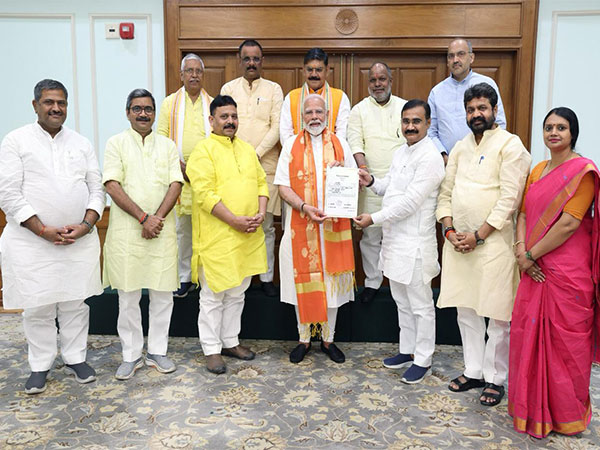Modi 3.0: Sitharaman's Roadmap to a $5 Trillion Economy
Finance Minister Nirmala Sitharaman is expected to outline the economic agenda for the Modi 3.0 government during the upcoming annual budget presentation. Key focuses include boosting growth, curbing inflation, and progressing towards a $5-trillion economy by fast-tracking reforms. The agenda also addresses agricultural sector stress, job creation, and maintaining fiscal prudence.

- Country:
- India
In a sign of Prime Minister Narendra Modi's preference for policy continuity, Finance Minister Nirmala Sitharaman is set to unveil the government's economic agenda when she presents the first annual budget of Modi 3.0 next month.
Her challenge is to boost economic growth while controlling inflation and generating resources to meet coalition government's needs.
The agenda aims for rapid reforms to achieve a $5-trillion economy soon and to transform India into 'Viksit Bharat' by 2047.
Last week, the RBI projected the economy to grow by 7.2% this fiscal year, backed by improving rural demand and moderating inflation.
The new government benefits from a strong economy with fiscal prudence intact, bolstered by an unprecedented Rs 2.11 lakh crore dividend from the RBI for FY24.
The top priorities for the Modi 3.0 government are addressing agricultural stress, creating jobs, maintaining capex momentum, and increasing revenue to stay on the fiscal consolidation path.
Rating agency S&P has rated Modi's past economic policies positively, upgrading India's sovereign rating outlook to positive and hinting at a potential rating upgrade if fiscal deficit targets are met.
While tax revenues are robust, non-tax revenue remains a challenge due to stalled strategic disinvestments. Upcoming strategic sales include CPSEs like Shipping Corporation and NMDC Steel Ltd, and the sale of IDBI Bank is delayed.
The government also faces resistance to banking sector reforms and has struggled to privatize public sector banks and insurance companies.
On taxation, the GST Council, chaired by Sitharaman, will have to consider GST rate and slab rationalization to implement GST 2.0, despite comfortable monthly mop-ups.
Sitharaman, the first full-time woman finance minister of independent India, has led the country through the Covid-19 pandemic with policies to support the poor, maintaining India's status as a rapidly growing major economy and a 'bright spot' globally.
(This story has not been edited by Devdiscourse staff and is auto-generated from a syndicated feed.)










